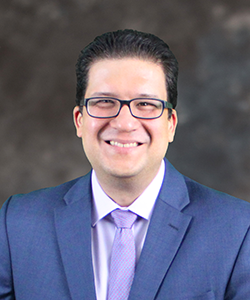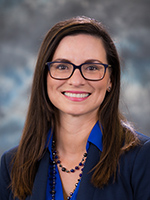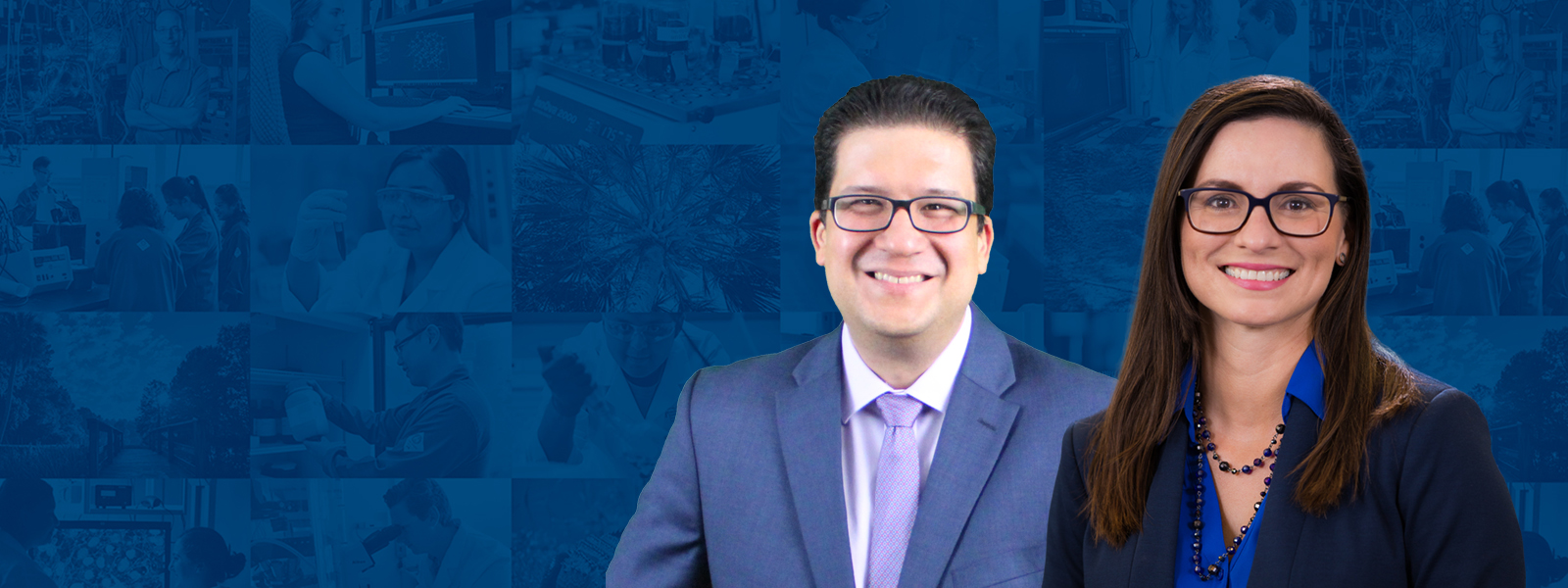Carlos M. Rinaldi-Ramos, Ph.D., chair and Dean’s Leadership Professor at the University of Florida Department of Chemical Engineering, and Sindia M. Rivera-Jiménez, Ph.D., an instructional assistant professor in the Department of Engineering Education and an affiliate faculty of the Department of Chemical Engineering, received the 2021-2022 Herbert Wertheim College of Engineering Doctoral Mentoring Award, and Undergraduate Faculty Advising/Mentor of the Year Award, respectively.
This honor, based on an extensive review of their credentials, letters of recommendation, and peer and student evaluations, recognizes excellence in mentoring our students. College Undergraduate Adviser/Mentor Award winners are also submitted to University Faculty Development for consideration for the university-wide Undergraduate Adviser/Mentor of the Year Award.
Doctoral Mentoring Award
 Carlos M. Rinaldi-Ramos, Ph.D.
Carlos M. Rinaldi-Ramos, Ph.D.
Department chair and Dean’s Leadership Professor
Of all the many rewarding aspects of being a university professor, I enjoy mentoring students the most, especially in research. To me, discovery is most fun in collaboration with students, and I find the satisfaction of seeing students grow as scientists is a great way to counterbalance the frustration that often accompanies research at the forefront of knowledge.
In mentoring, I strive to recognize that each student is unique and as such, the advisor/student relationship will be unique. I try to learn how students learn and how to motivate their growth, and I work to tailor my approach to their needs while emphasizing important core knowledge and skills. I also believe that my student’s success is tied to my effort and dedication as a mentor.
Even with the demands of being department chair, I aim to have frequent communication and interaction with my students, through weekly group meetings to foster group communication, weekly to bi-weekly individual meetings to discuss progress and challenges, ad hoc meetings as needed, and effective online communications through team management platforms (e.g., Teams). We balance this with discussions of important issues facing students (e.g., imposter syndrome, depression, etc.) and social activities (e.g., group dinners) to relieve stress and foster team spirit.
This approach of constant communication balancing academics, research, and personal needs helped us retain our sense of community through the pandemic, while we pivoted efforts toward projects that could be conducted remotely or with physical distancing and reduced resources. As a result, my students become experts in the synthesis, characterization, and biomedical applications of magnetic nanoparticles while learning transferable knowledge and skills in nanomaterials and bioengineering, gaining experience in using and maintaining research instrumentation, participating in multidisciplinary and multi-campus collaborations, and learning valuable teamwork, leadership, and communication skills.
In the classroom and laboratory, I like to emphasize fundamentals and teach students to appreciate that by knowing the why they will understand the when and how of physical phenomena. This emphasis stems from understanding that a university education is but a brief period in a lifetime of learning needed to remain current in the field. As such, an emphasis on fundamentals provides a foundation for continued learning as students become practitioners.
Undergraduate Faculty Advising/Mentor of the Year Award
 Sindia M. Rivera-Jiménez, Ph.D.
Sindia M. Rivera-Jiménez, Ph.D.
Instructional assistant professor, Department of Engineering Education
Affiliate faculty, Department of Chemical Engineering
My goal as a teacher and a mentor is to foster cultural and social interactions that positively influence the way people learn and their sense of belonging and identity. Mentoring is the single most rewarding part of my job as a faculty because I am directly involved in my mentee’s persistence in the discipline, increased self-efficacy, and professional development. I am here today thanks to the many mentors that once saw my potential and challenged me to be a better engineer. Now, as an engineering faculty, I devote myself to helping my students identify their talents, help them build confidence, and create strategies to reach their personal and professional goals. My mentoring philosophy is characterized by a positive attitude, effective communication, creative problem solving, confidence, and adherence to learning principles.
In my multiple roles at UF since 2016 (lecturer, assistant director of an industry-sponsored capstone design program, and social researcher), I can affirm that mentoring can occur at any time and any place. By cultivating solid and authentic mentoring relationships, I increase the likelihood that my mentees will open and share accomplishments, challenges, or difficulties they are experiencing. By listening, I come to understand the unique needs of each mentee, which in turn allows me to adapt my mentoring style. A mentor must communicate with the mentee, and the communication must be in a format the mentee can understand. Through the years, the age and needs of my students have changed, resulting in an evolution in my communication style. For me, it is vital to determine a format that allows the mentee to feel comfortable discussing important issues. Once the communication method is established, I develop a rapport with my mentee through regular meetings and regular engagement.
Finally, as a mentor, I try to be empathetic, thoughtful and inspiring. Empathy allows me to understand better the mentees’ perspectives and meaningfully relate to them. I must carefully consider my mentee’s situation and my advice’s potential effect. An effective mentor must know how to inspire. I always try to be honest and share my story and experiences with them as much as I can. In my experience, a good connection with your mentee should include a mutual sense of respect and trust.

